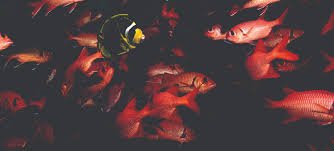Dragons in Legends of Prosperity and the Royal Family’s Connection to Heaven and Earth
The dragon (龙, Lóng) has long been one of the most powerful symbols in Chinese…
The dragon (龙, Lóng) has long been one of the most powerful symbols in Chinese culture, mythology, and imperial traditions. Unlike the fearsome creatures of Western folklore, Chinese dragons are benevolent, wise, and celestial beings that symbolize prosperity, good fortune, and the divine right to rule. For centuries, Chinese emperors and royal families have regarded…

The dragon (龙, Lóng) holds a profound place in Chinese mythology, folklore, and spiritual beliefs. Unlike Western traditions where dragons are often depicted as fearsome, fire-breathing beasts, Chinese dragons are revered as celestial beings, wise guardians, and mediators between the human world and the supernatural realm. For centuries, Chinese culture has intertwined dragons with ancestral…
The dragon (龙, Lóng) is one of the most revered and enduring symbols in Chinese culture, representing power, wisdom, and balance. Beyond its association with imperial authority and celestial protection, the dragon is also a potent symbol of longevity (长寿, chángshòu) and eternity (永恒, yǒnghéng). From ancient mythology to traditional art and spiritual beliefs, dragons…

In Chinese mythology and folklore, the dragon (龙, Lóng) is not just a powerful and mystical creature—it is also a symbol of wisdom, righteousness, and justice. Unlike the fearsome and destructive dragons of Western tales, Chinese dragons are often depicted as benevolent and intelligent beings, guiding heroes and deities toward truth, fairness, and moral triumph….

The dragon (龙, Lóng) holds a unique and revered position in Chinese mythology. Unlike in Western traditions where dragons are often depicted as destructive creatures, in China, dragons are symbols of wisdom, power, protection, and divine authority. They are often associated with guardian deities, celestial beings, and spiritual forces that watch over the natural world…

The dragon (龙, Lóng) is one of the most powerful and enduring symbols in Chinese decorative arts. Representing strength, wisdom, prosperity, and divine power, the dragon has been widely used in various forms of traditional Chinese decoration, from imperial architecture and ceramics to clothing, furniture, and calligraphy. This article explores how dragons have influenced different…

Dragons (龙, Lóng) have long been central to Chinese mythology, not only as symbols of power and prosperity but also as guides, protectors, and catalysts for exploration. In Chinese legends, dragons are often linked to the discovery of new territories, the establishment of cities, and the conquest of unknown lands. These mythical creatures are believed…
Dragons hold a significant place in Chinese mythology, epic tales, and war legends. Unlike the fire-breathing monsters of Western mythology, Chinese dragons (龙, Lóng) are revered as divine beings representing power, wisdom, protection, and destiny. They are often depicted as celestial guardians, symbols of imperial authority, and even participants in legendary battles that shaped China’s…

Throughout Chinese history, the dragon (龙, Lóng) has been revered as a symbol of power, prosperity, and good fortune. Unlike Western dragons, which are often depicted as fearsome creatures, the Chinese dragon is a benevolent force that brings abundance, success, and protection. Over time, this mythical creature has been combined with various traditional symbols of…
In Chinese history and culture, dragons have always played a central role, symbolizing power, longevity, and divine protection. Among the grandest occasions where dragons take center stage are imperial birthday celebrations, particularly those of emperors and empresses. These royal birthdays were not just private milestones; they were national events, marked by elaborate ceremonies, rituals, and…